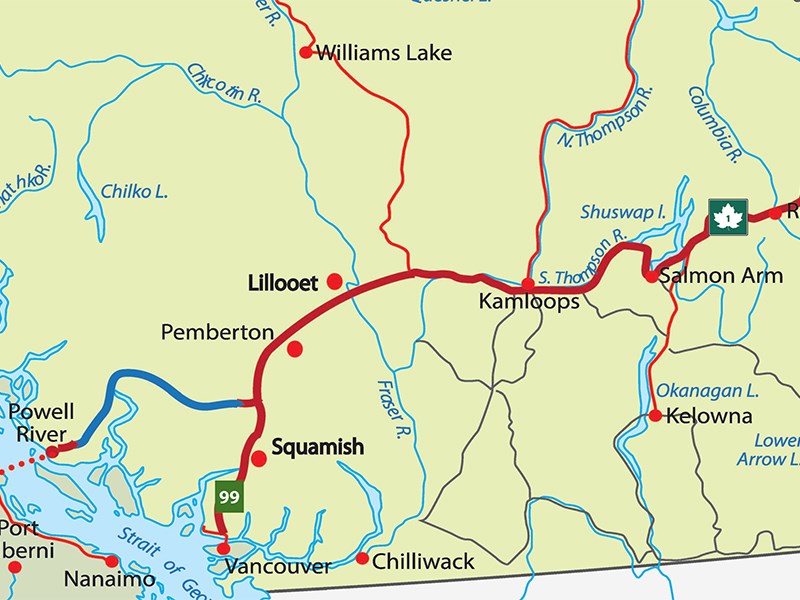While residents on both sides of Jervis Inlet wait for the results of the provincial government’s fixed-link feasibility study, expected sometime later this month, Powell River’s Third Crossing Society has decided to step up its advocacy for its proposed highway link across the province.
Society president Gary Fribance sent an open letter, on behalf of the organization, to premier Christy Clark Tuesday, December 6, suggesting a “three-pronged prescription” to solving the problem of “large swaths of prime coastal real estate now hostage to our struggling coastal ferries operation.”
According to Fribance, the letter contains the same message the society has always had, “but we’re taking it to the premier, who we believe is the main decision maker on this sort of thing.”
The letter states that the three-pronged approach would consist of building a highway from Sea-to-Sky Country to the Upper Sunshine Coast with a ferry connection to Vancouver Island, a bridge connection across Howe Sound and a “major overhaul” of BC Ferries to generate enough savings to pay for both infrastructure projects over a 10-year period.
The letter also asks the premier to take a close look at the society’s proposed route that would create a highway from Alberta to the Pacific Ocean, bypassing the congestion of the Lower Mainland and help Clark establish what the letter refers to as her “legacy, a Coquihalla for the coast.”
“People still talk about Bill Bennett, who brought us the Coquihalla Highway,” said Fribance.
Powell River-Sunshine Coast MLA Nicholas Simons said he supports the society’s efforts to raise greater awareness about the issue in the provincial capital. Simons said the group can take some credit for helping to raise the profile of the issue enough that government decided to spend the money on the initial scoping study.
“It’s only appropriate that they bring their case to the premier,” said Simons. “[The provincial government] are considering the Third Crossing’s route, but they are not looking at it in the same context as the society is.”
Fribance said the society was initially disappointed with the fixed-link feasibility study’s terms of reference because they were thought to be “too limited.”
Since then the society has received correspondence from transportation and infrastructure minister Todd Stone addressing some of those concerns, he added.
When the results of the study are released later this month, they will not include a definitive answer, but they will provide a cost-benefit analysis for each of the proposed linkages in the study. Fribance added that it is the society’s goal to have its Powell River road link stay in the feasibility study as it develops.
Fribance said he expects it to take between one to three years to complete the feasibility studies.
“We’re mindful there’s an election coming up in May, so the timing is good, I suppose,” he said. “The people who I’ve talked to say that ferries are the number-one issue in this riding.”
Simons said he is aware of the timing of the government’s look into the fixed-link feasibility, but it is shifting the focus off fixing the coastal ferry system.
“This discussion is succeeding in distracting us in immediate concerns with ferry service,” he said. “That’s unfortunate.”
Simons said he can understand why the Sunshine Coast supported the idea of spending $250,000 to do the study, but he added that it would be “really good to ascertain whether an improvement in our ferry service would have the same effect.”



